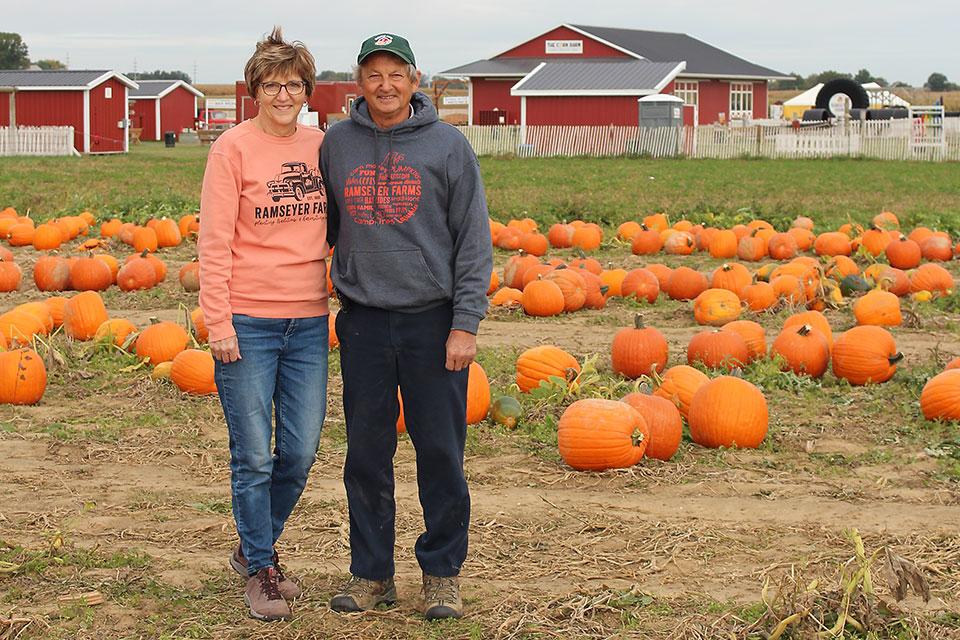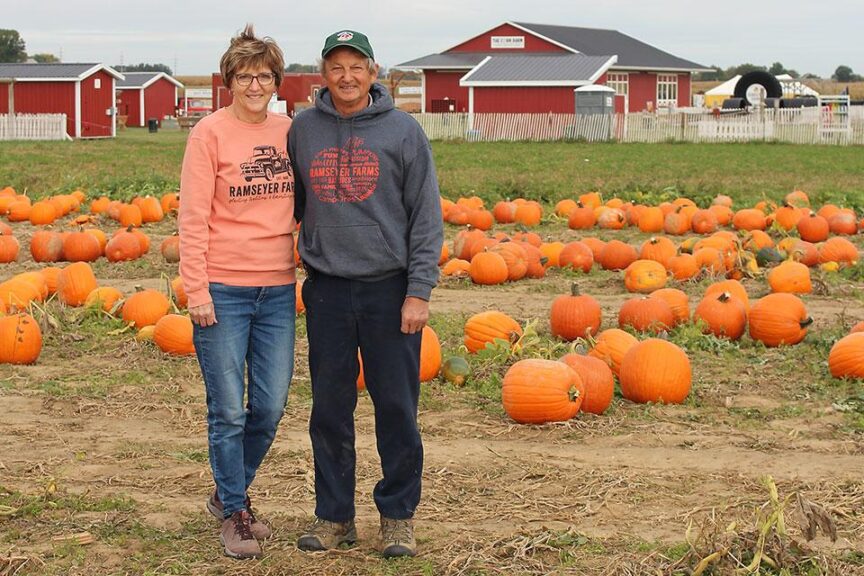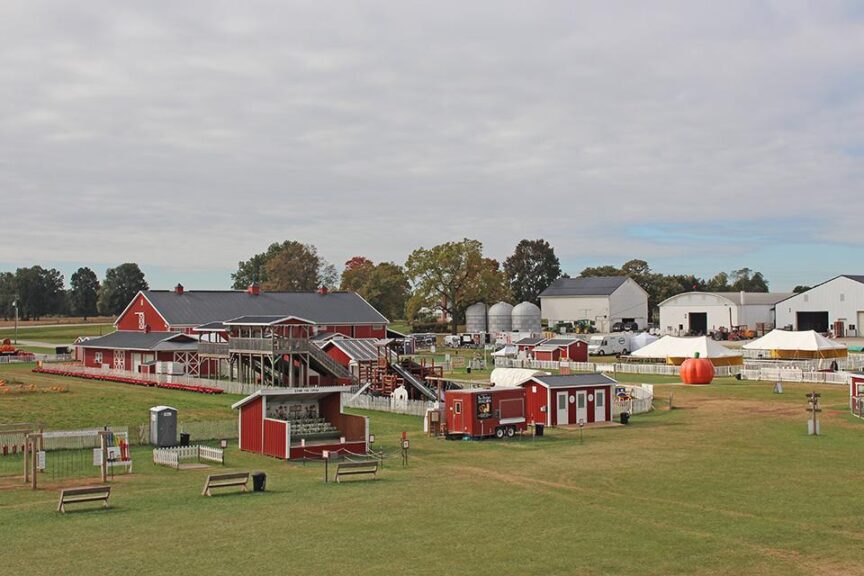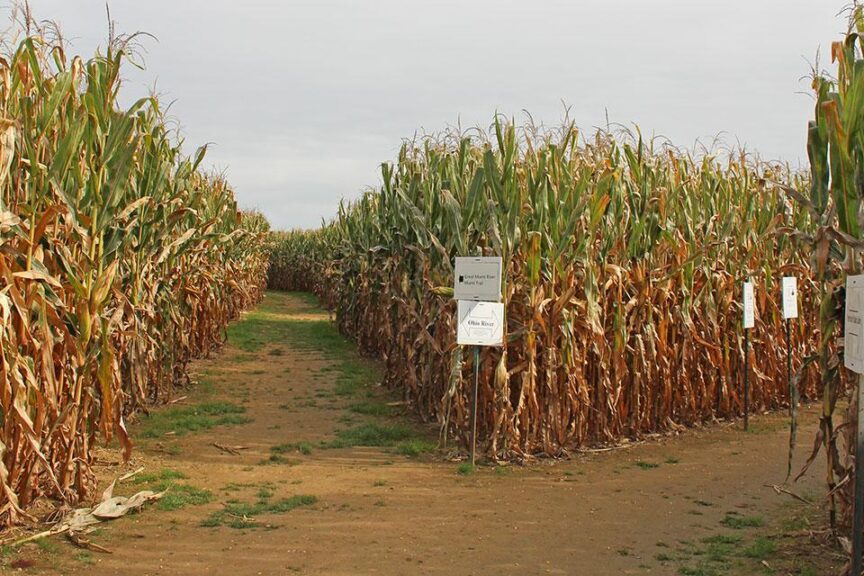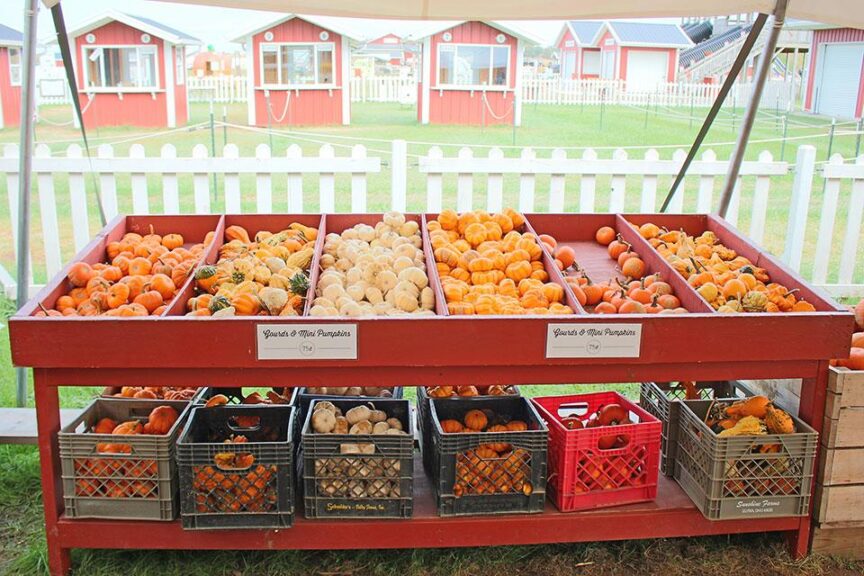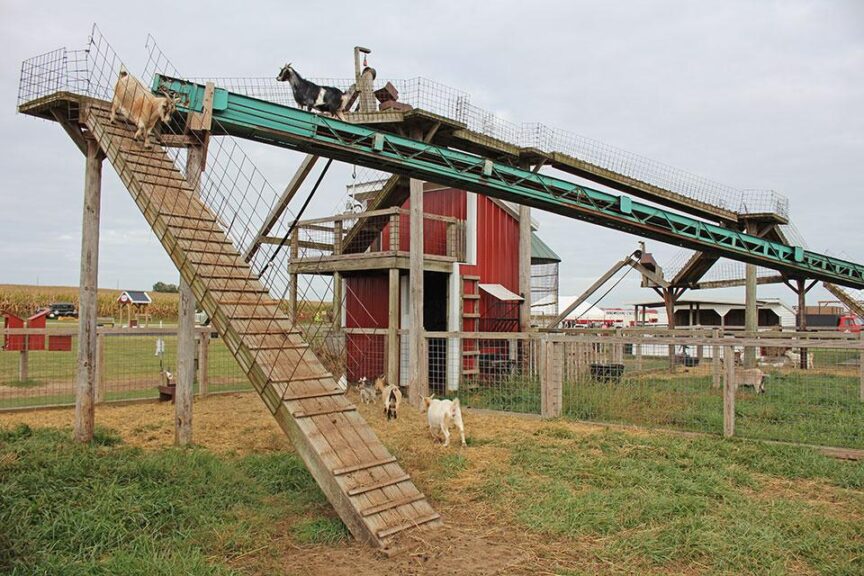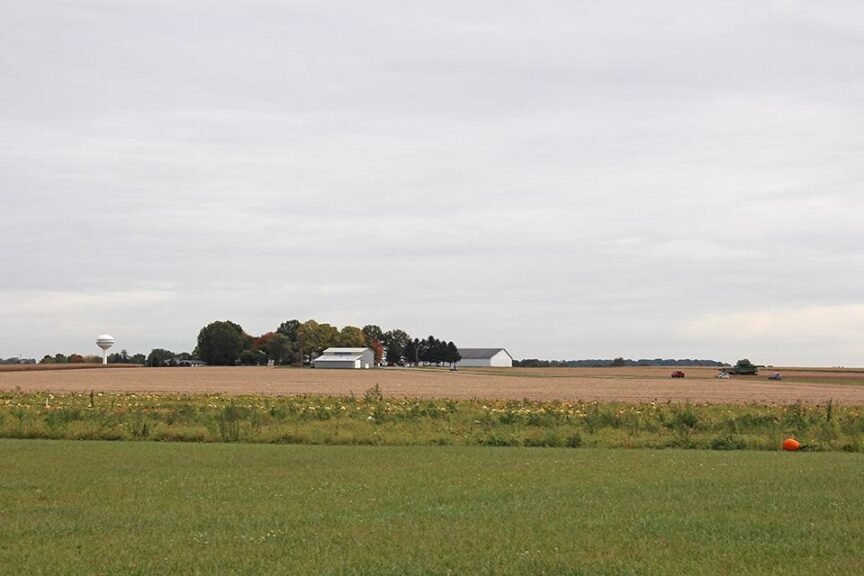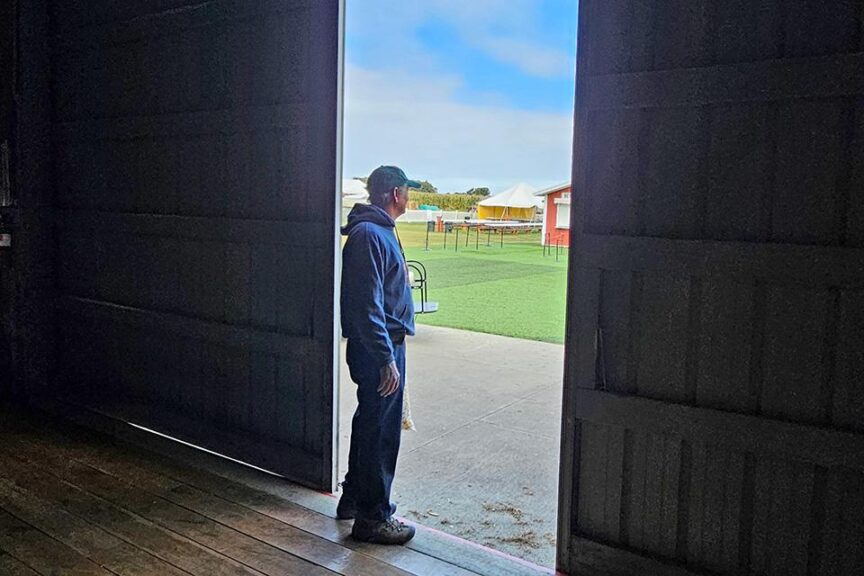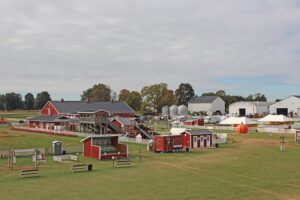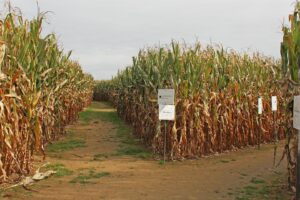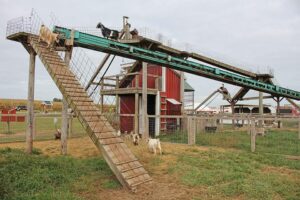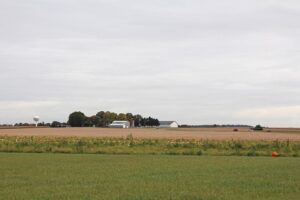How Dennis Ramseyer Protects His Farm for the Future
Ramseyer Farms has a rich history. The family has owned its land since 1880, growing mostly potatoes over much of its history. When three rough weather seasons hit within three years in the 1980s, the lucrative contract with Frito Lay for chipping potatoes disappeared. Dennis Ramseyer, the current generation owner, eventually switched the large farm to an agritourism hotspot in the 2000s, while keeping a sizeable growing area, though not at its peak 1,500 acres.
In the fall of 1999, he and his wife Karen hosted a Sunday school class party on his property, holding the event in the woods. They had a bonfire, played games, generally having a great time.
“It was coming back from there [we said, you know, people don’t experience rural life. They’re living in the city, and we take it for granted,” Ramseyer says.
As his new business model solidified, he saw a worrying trend. One that’s familiar to growers across the country. Nearby towns were expanding out to farm areas, and financially strapped farmers faced tempting cash infusions by selling or leasing land.
Wayne County, OH, home to Ramseyer Farms, has unusually rich soil. In fact, 81% of the county’s agricultural land boasts nationally significant soil — compared to 39% of farmland in the U.S., according to the American Farmland Trust. This is a designation of farmland best suited for long-term crop production, especially produce.
So when solar companies came in, pressing for large tracts of land to be converted to solar farms, Ramseyer felt uneasy.
“I’m not against that on nonproductive ground. It’s great. Let’s do it. But to take some of your best productive ground in the state and tie it up for 30 years with solar panels just hurts me,” he says.
And once converted to another use, he points out, that land will likely never be farmed on again.
“You’ll destroy all your tile systems, and I just don’t think they’ll be able to put it back into production,” Ramseyer says.
So Ramseyer joined Wayne County’s Agricultural Security Area program. It ties the land to agricultural-only activity for 10 years.
Protecting Farmland for the Future
Like many states across the country, Ohio has a program to help preserve farmland. It just so happens Ramseyer Farms is located in the county with the state’s strongest Agricultural Security Areas in the country, with 7,000 protected farm acres.
This particular program requires a minimum of 500 contiguous acres be protected. Ramseyer’s farm is large enough on its own, but that particular size requirement spurs neighboring farms working together to create a parcel of land big enough to qualify.
“For that, farmers get some extra protection against development,” says Jessica Eikleberry, Wayne County’s Farmland Preservation Specialist.
That includes not only developers moving in, but also local towns wanting to expand into the area and running utilities through prime crop-growing areas.
Since the local city of Wooster is expanding out toward the farms in Ramseyer’s area, there are developers offering a lot of money per acre.
“You know, $20,000 to $50,000 per acre is hard to say no to,” Eikleberry says.
To help counter that, the program offers a significant tax break — a 50% tax break for new agricultural investments for 10 years (which is also the length of time the program lasts before needing to be renewed).
For a more permanent solution, Ohio’s Department of Agriculture offers the Local Agricultural Easement Purchase Program. It provides funding to land-owners for placing an “agricultural easement” on their property. The state pays $2,000 per acre with a cap of $500,000 per farm. Yet farmers remain the land’s owners, and they can sell or pass along the land, but it must remain agriculture.
Next-Level Labor
Another front of his battle to preserve the farm is keeping his agritourism business thriving. One key to the Ramseyers’ success? Over hiring.
When other growers try to keep their labor costs low, Ramseyer sees workers as the key to the public’s great experience on the farm. It’s kept pristine, and friendly staff are available to keep lines moving smoothly. And he has a few tricks to keeping those employees happy.
Hiring “breakers.” Ramseyer has a couple employees whose entire job is to take over other employees’ work so they can take a true break. It not only helps morale, but it also keeps all positions filled throughout the day, leaving no attraction understaffed.
A coach for the win. Most companies have a training period with a lot of hands-on instruction. Ramseyer hired a coach to not only cover that task, but also walk the grounds, offering advice to workers while on the job.
That role could easily devolve into harassment in the wrong hands. But as a career coach, she understands how to mix encouragement with practical tips. She’s also a family friend who understands the standards and family atmosphere the Ramseyers want for their workers.
Part of the family. Ramseyer does all he can to make workers feel like they’re part of the family. To the Ramseyers, that means treating them fairly and working with their personal schedules. At the beginning of the season, employees fill out a calendar of which days they cannot work. Since they’re open only two months, that initial calendar holds up pretty well.
“We’re all in this together, and without them, we couldn’t do this,” Ramseyer says.
All this seems to be working for them. Between the great atmosphere and abundant experiences offered, Ramseyer Farms required weekend reservations to help control crowd size.
At a Glance: Ramseyer Farms
Owners: Dennis and Karen Ramseyer
Founded: 1880
Location: Wooster, OH
Size: 550 acres devoted to crops; 90 acres devoted to agritourism
Crops: Wheat, pumpkins, small amount of popcorn, sunflowers and zinnias, corn, and soybeans




